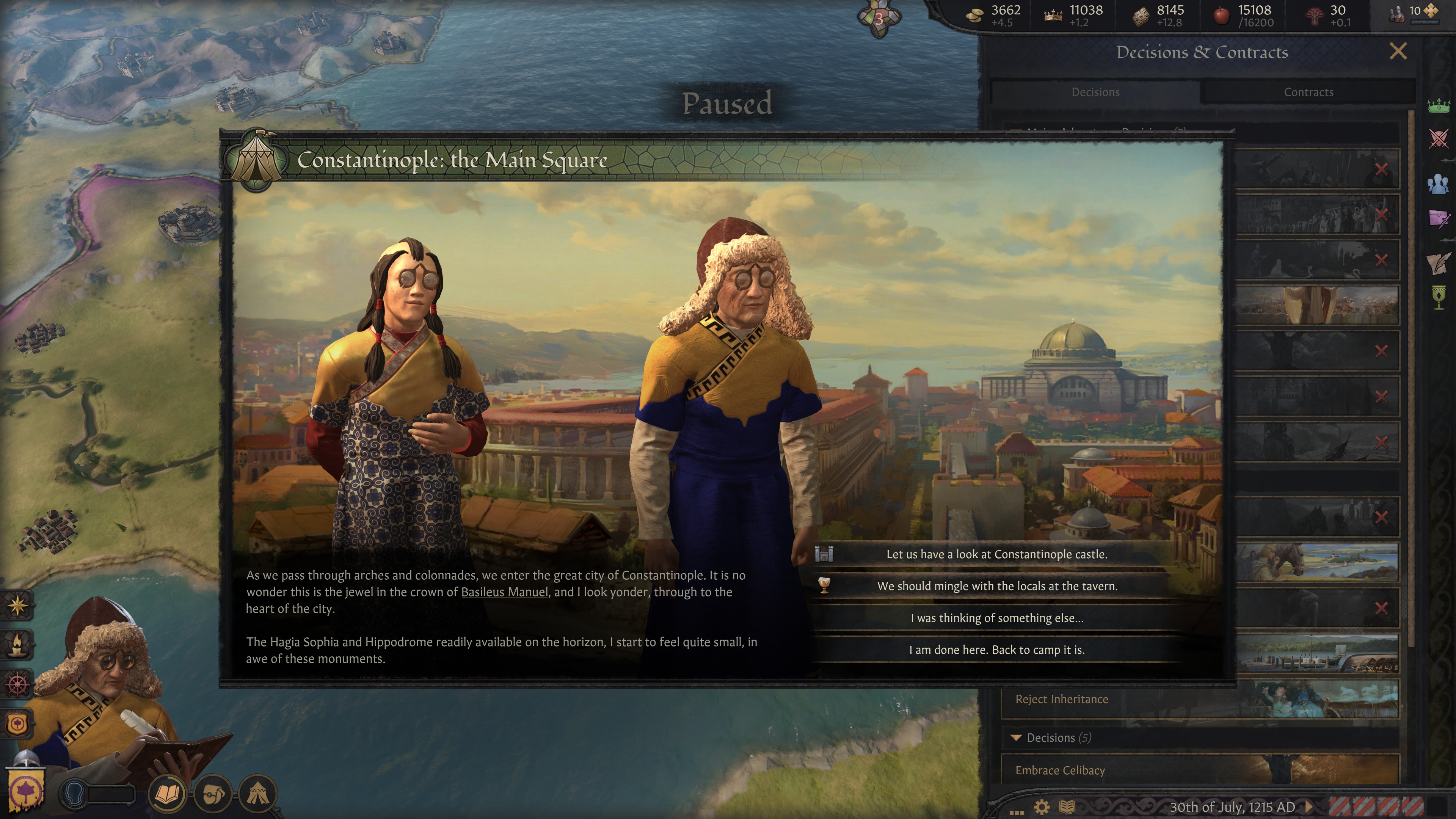
Master Huang was born in the foothills of Shanzhou, in the far northwest of what is today China's Qinghai Province. In Crusader Kings 3, this represents the far eastern edge of the map, and one of the only places where you can find the Han Chinese culture. Unlike every character I had ever played in my thousands of hours of Crusader Kings previously, he was not born into wealth nor land. His legend would be all the more exciting because of that.
Roads to Power, which is out today, is one of the most ambitious expansions Paradox has ever conceived, allowing you to play as a landless adventurer who can travel the world freely, completing quests for the local magnates who would normally be your friends, vassals, and rivals. I was excited about this prospect from the beginning, since I've joked that everyone playable in Crusader Kings up til now kind of sucks. Even the lowliest baron is part of the top one percent of the one percent in medieval society. And the lowest previous playable rank, a count, is even more absurdly wealthy.
When I set Huang out on his travels, he had only a wagon full of supplies and his two besties: fellow scholars Zhong and Tabuye from the Western Xia Kingdom. Huang slowly started to build a reputation for himself as he traveled across the Tarim Basin as a diplomat and a jurist, solving boundary disputes, raising structures, and hobnobbing with the high and mighty like the Khagan of the Kara Khitai horde. They met a number of interesting characters who would join their travels, including a Christian Arab from the Far West named Uways and a charismatic Kazakh named Sarica who would become Huang's wife.
Roads to Power has a very different gameplay loop from a standard CK3 start, since your traveling band doesn't have any monetary upkeep cost and only consumes supplies when on the move. It's sort of assumed that everyone takes care of their own needs otherwise, which is a bit disappointing for a strategy game. I would have preferred this new perspective on a CK3 campaign include a bit more economic management. And while there is a mechanic to measure the level of discontent among your followers, I have yet to run afoul of it the way I might ambitious vassals. It's definitely a roleplaying-focused feature more than a mechanically interesting one, but roleplay is the main thing I come to Crusader Kings for. And it's never felt more like an RPG than it does when I'm playing a landless character.
The road to Nirvana
As a devout Buddhist, Huang eventually made his way around the outskirts of the Tian Shan mountains, through the rugged valleys of Afghanistan, and into the Indian subcontinent from whence the Buddha originally hailed. He studied at the university in Avanti, sharpening his mind further, and visited all of the great Mahayana pilgrimage sites, deepening his understanding of enlightenment.
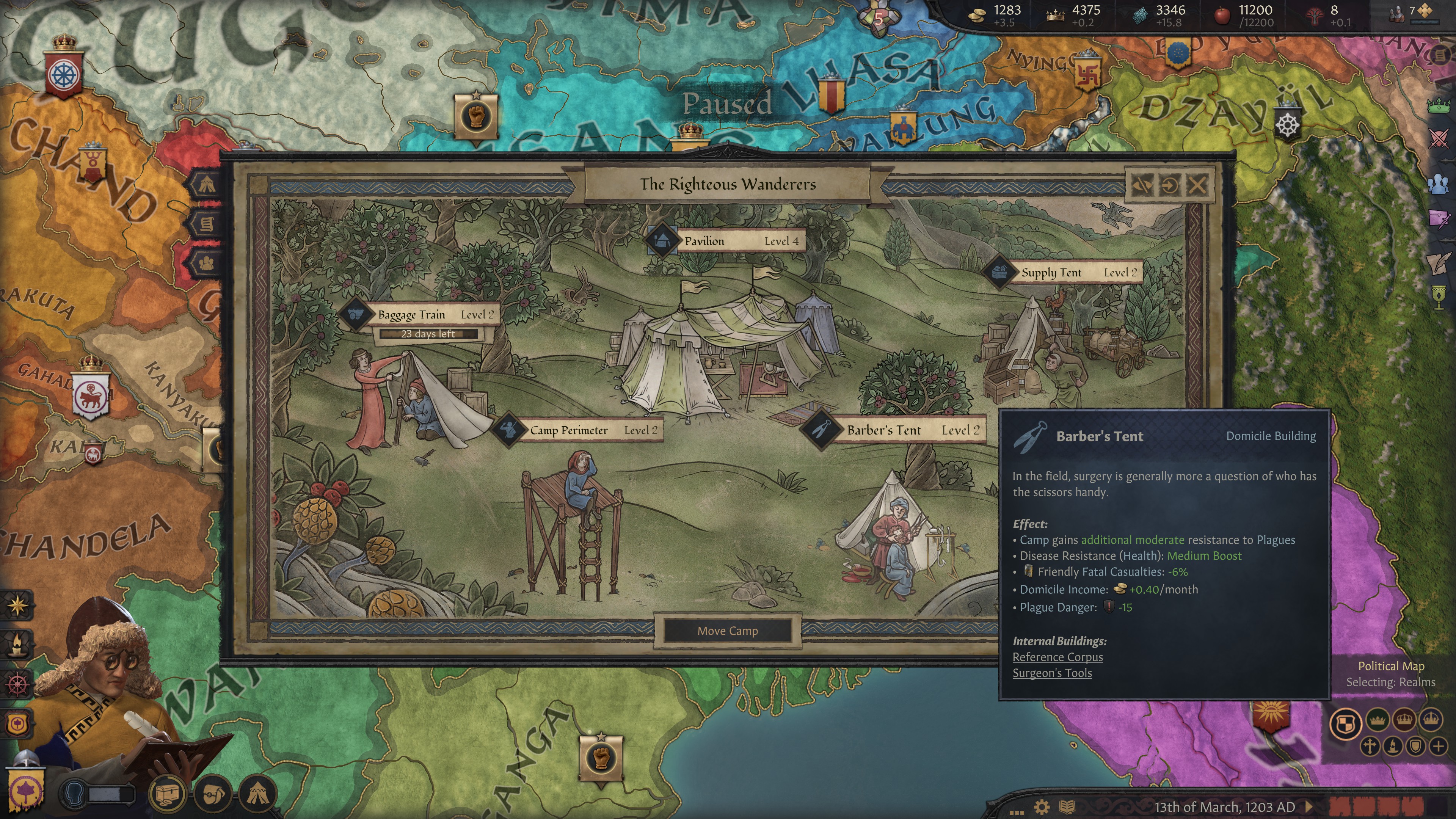
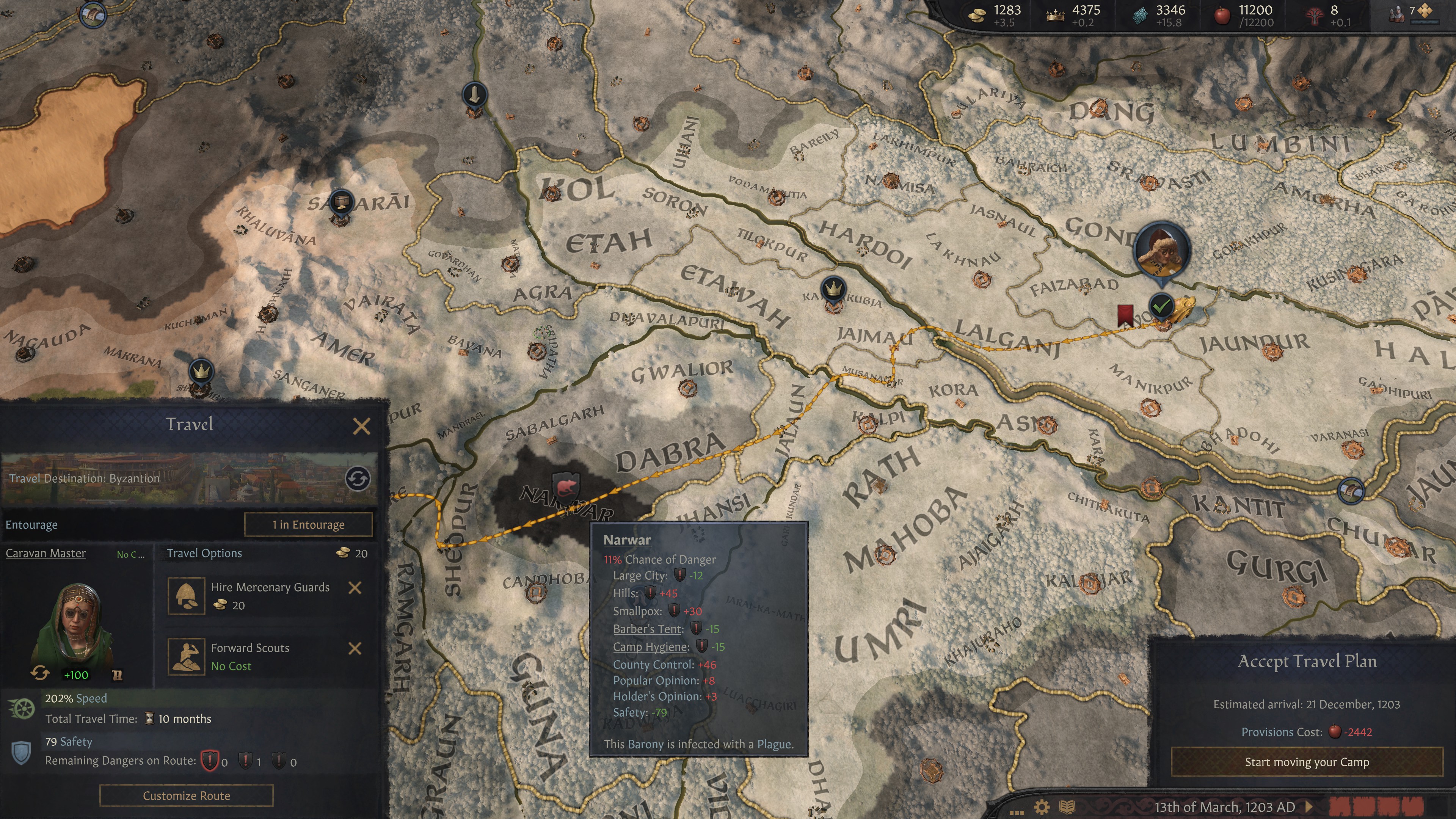
In all this time I never raised a soldier, fought a battle, or engaged in any type of violence. Sometimes I'd simply have to pass a skill check to get the best outcome. Other times, I'd have to assemble a team of agents to participate in the excellently reworked scheme system, with each plot requiring different roles that lent themselves to a different set of skills. Becoming a better adventurer really became about finding the right people and convincing them to follow me.
This kind of bloodless playstyle would have been nearly unthinkable playing as a landed ruler. It's now possible to progress, become wiser and wealthier, and upgrade your personal caravan as a true diplomat and pacifist, which I found to be an enjoyable challenge.
Keep up to date with the most important stories and the best deals, as picked by the PC Gamer team.
Huang's ultimate destiny lay far from the Ganges. He made his way, in his middle age, across Persia and Anatolia to the shining city of Constantinople. Roads to Power introduces a new administrative government type that swaps out vassals for appointed governors and adds tons of new content for the fading Eastern Roman Empire. With the wealth he had accumulated along his travels, Huang was able to purchase an estate in the capital (after buttering up the emperor just a bit). He wasted no time using his wealth and his acumen to increase the standing of his family in Roman society, building new structures to generate both money and influence—the new currency of administrative realms—to perhaps secure a governorship for himself and his sons.
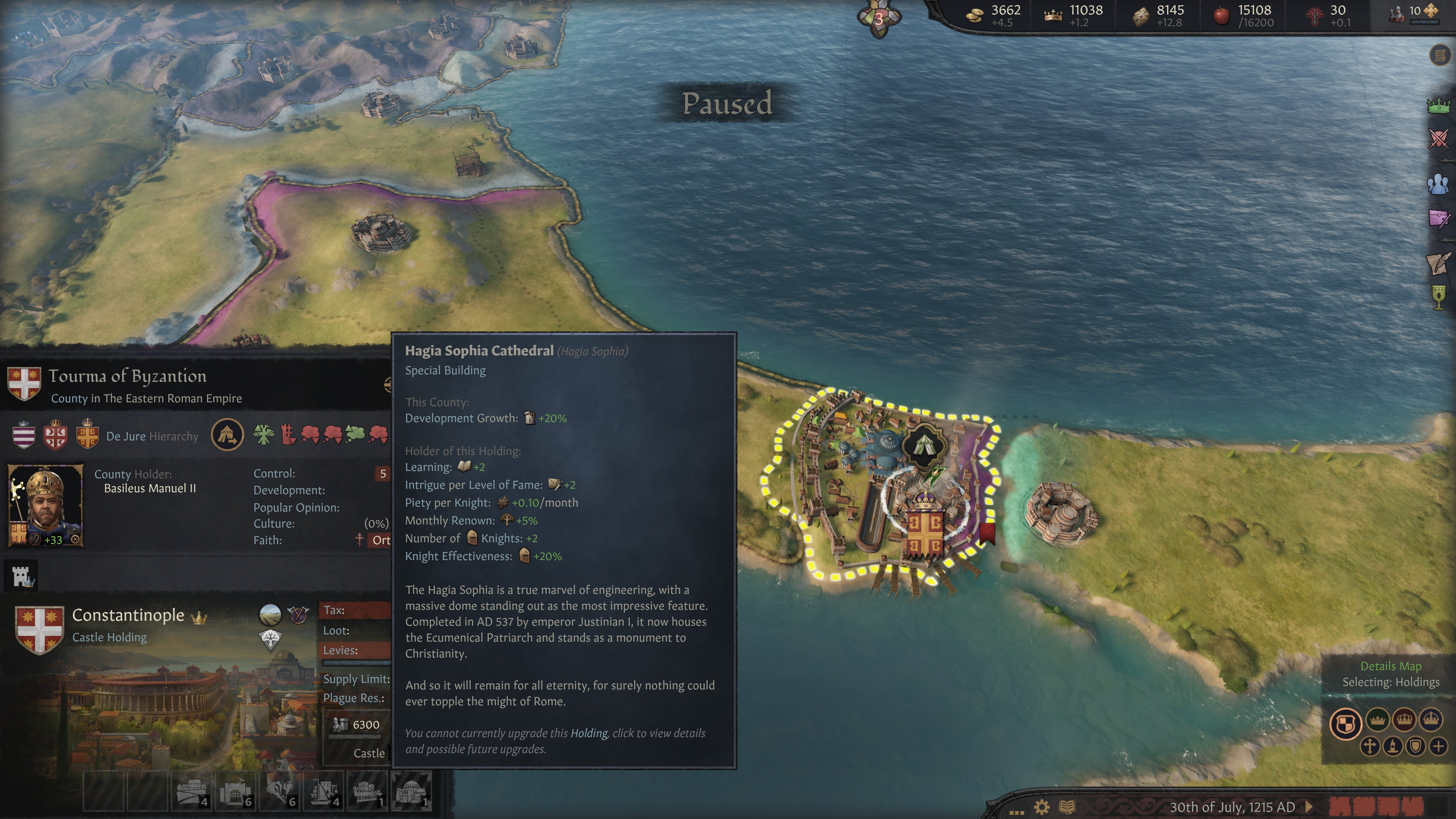
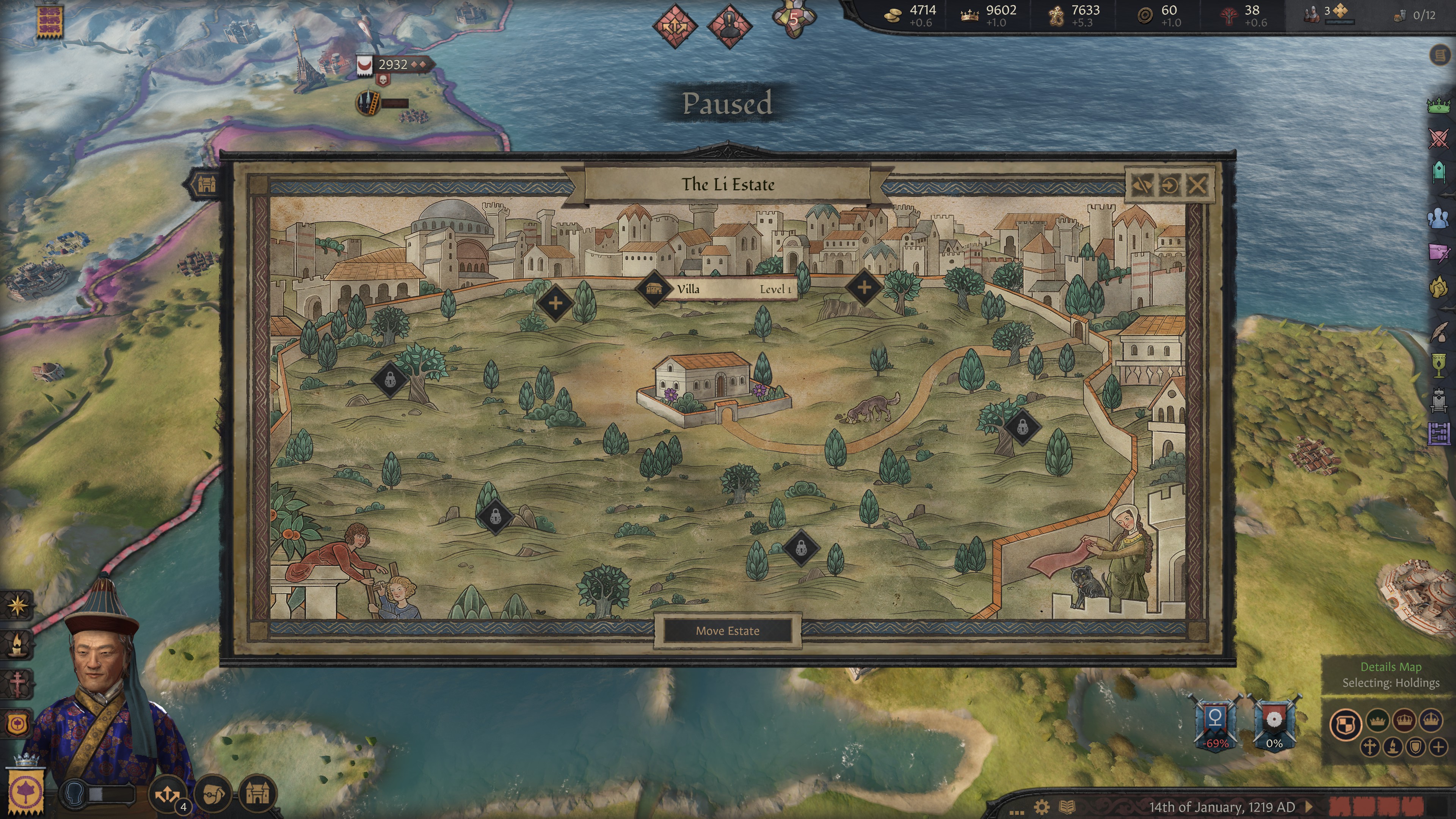
Unlike previous government times in CK3, administrative realms don't care about a noble pedigree. If you're wealthy enough you can buy your way into the deadly game of politics. Huang's family would be seen as outsiders, but as he spoke fluent Mongol, Turkish, Persian, and Greek, that was a social disadvantage he was more than capable of overcoming.
A sound of thunder
Alas, it was the year 1219, and within months of Huang settling down, Genghis Khan, the Scourge of God, swatted aside the Roman armies and sacked the city of the world's desire, putting it to the torch just like Samarkand and Baghdad before it. I swear I did not plan any of this. A darker timeline than our own, and the end of Huang's tale—though characters who become unlanded can now choose to set off on the road to adventure again. Every ending is just a new beginning. And if you have claims to lands that are now lost to you, you can even become a special type of adventurer who is focused on regaining your birthright.
Roads to Power represents Crusader Kings 3 taking a step toward the medieval roleplaying sandbox it's destined to be, and my dearest wish is that this style of gameplay continues to be a focus for Paradox going forward. What has always made the series unique is the kinds of stories it can tell, and the opportunity to be a traveling preacher or lead a rowdy band of adventurers feels like the culmination of everything it aspires to. It's not perfect yet: this is still uncharted territory. But it has brought me back to CK3 in a big way, more than any previous DLC, especially with the ability to choose a descendant other than your primary heir to play when your current character dies, and take them off on the road to adventures of their own.
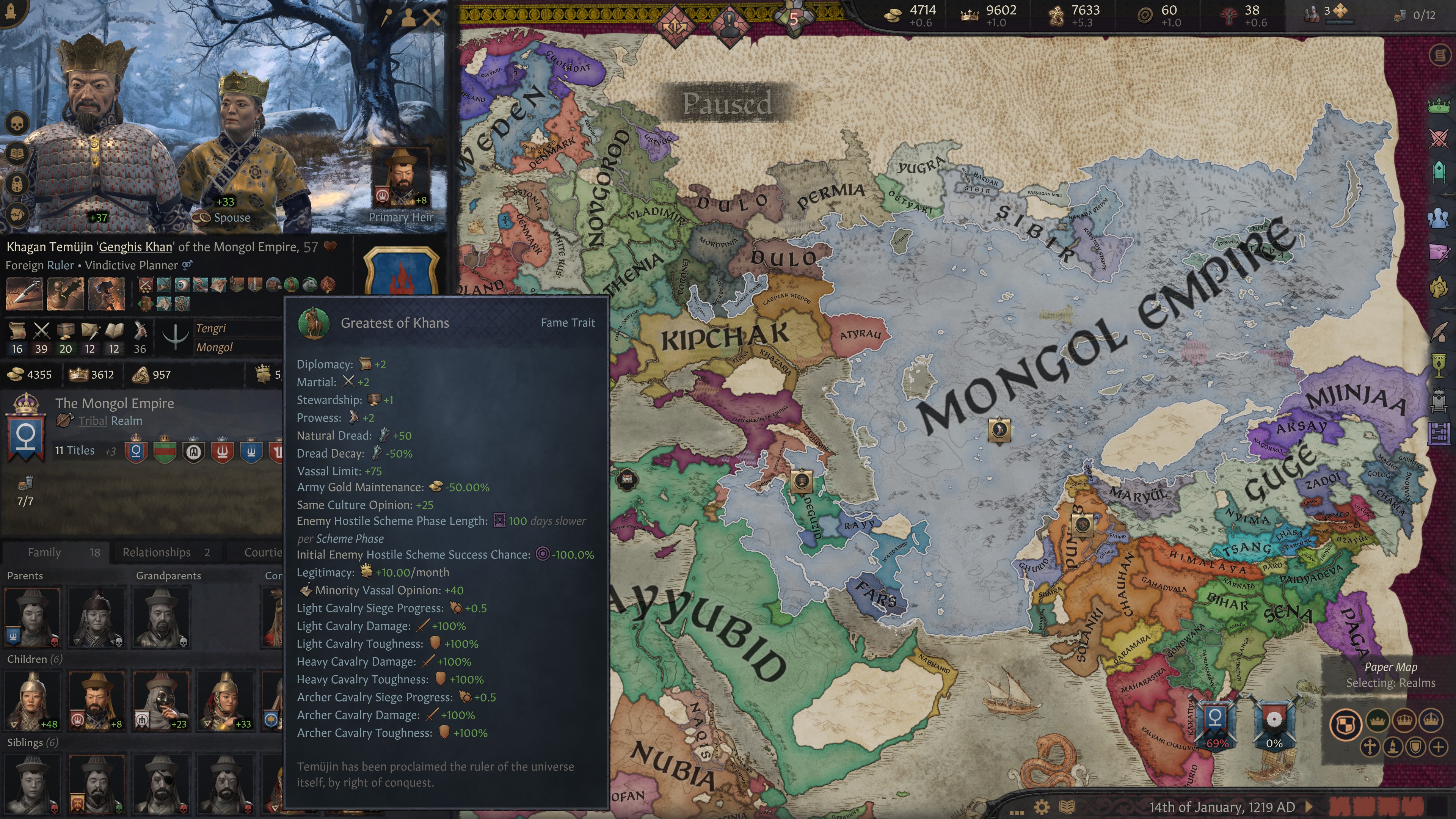
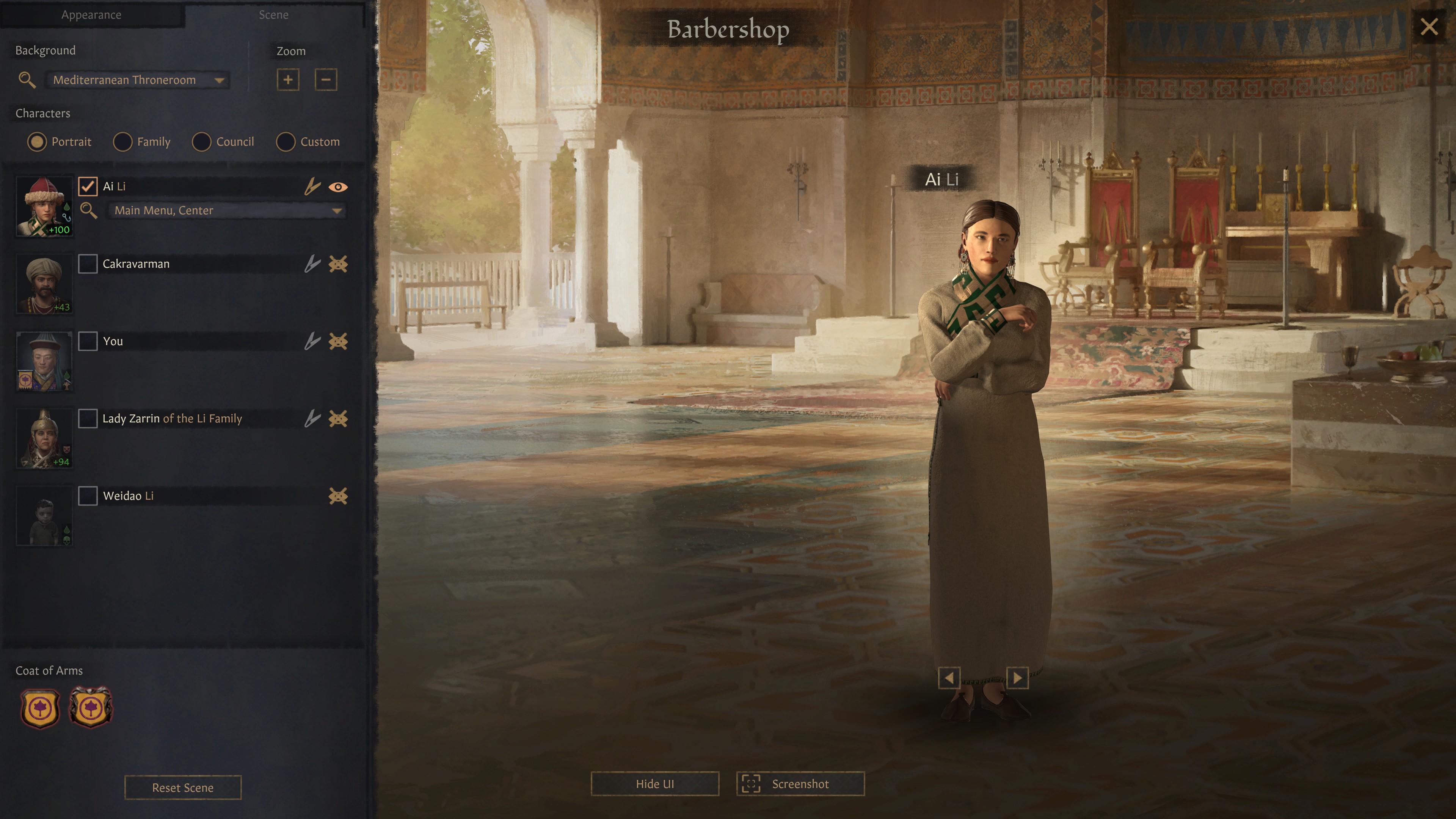
Master Huang was cut down when he refused to abandon his estate until all the servants had escaped. But not before he shoved his legacy—a detailed chronicle of his travels from the fringes of China to the heart of Greece—into the trembling hands of his 19-year-old daughter Ai. For most of her life, her home had been the open road. Now the only place she'd ever been allowed to settle was up in flames. But if there is one thing her father taught her, it was never to be afraid of the unknown. There was another Rome even further West, or so she heard. And another Roman Emperor. And thanks to her father, many of their old retainers made it out of the conflagration alive.
And so a new journey begins. Crusader Kings 3 often dead-ends for me at a point where I become too powerful, and I just get bored and abandon the save. But with Roads to Power, I'll always have the opportunity to start a different legacy, born from the old, whenever I so choose. What will become of Mistress Ai, then? Only time can tell.
Len Hafer is a freelancer and lifelong PC gamer with a specialty in strategy, RPGs, horror, and survival games. A chance encounter with Warcraft 2: Tides of Darkness changed her life forever. Today, her favorites include the grand strategy games from Paradox Interactive like Crusader Kings and Europa Universalis, and thought-provoking, story-rich RPGs like Persona 5 and Disco Elysium. She also loves history, hiking in the mountains of Colorado, and heavy metal music.

